On the 8th and 9th of April, the fifth flagship initiative of the Strategic Partnership InnovEd4TS was hosted virtually at Université Paris Cité. Invited experts from three Circle U. universities and the University of Lisbon had the opportunity to learn more on the course “Corps et Esprit, Esprit de Corps” (Body & Mind, Esprit de Corps). This course offers undergraduate students the opportunity to develop their transferable skills while learning from several professors coming from various academic fields.

“Corps Esprit, Esprit Corps” at Université Paris Cité
The class “Corps et Esprit, Esprit de Corps” is an annual course designed by Anne Vanet, Vice-President at Université Paris Cité in charge of digital transformation as well as biology professor. The course focuses on one specific theme, different each year. This interdisciplinary course is intended for undergraduate students coming from all disciplines of the university. It aims to make students aware of a multidisciplinary approach on several levels by:
- combining courses in Science, Health and Social Sciences around a central theme
- mixing audiences from these three major sectors of the university
- articulating academic courses, bodywork, and theatre courses
In addition, the course allows students to build a network: the focus on body language, street theatre, and martial arts help facilitate the exchanges among students. The final goal for the students is to present on campus a theatre play inspired by the theme of the course. The course aims to improve the student-teacher relationship, by outlining how teaching and learning can improve one’s personal and professional life.
This year, the theme selected was Covid-19. Experts from Louvain, Lisbon, Aarhus and Humboldt had the opportunity to meet with the designer, professors and students during the “Field mission”. Two days of online sessions helped the experts get insights on the pedagogical approach of this course, focus on key transferable skills developed and exchange with the stakeholders on their perspective on this unique way of teaching and learning. The health crisis became a natural choice to integrate into the course. The uniqueness of the way the course is set-up enables students that were not intended to meet, to actually meet, debate and open up to new perspectives.
Strategic Partnership InnovEd4TS (Innovative Education for Transferable Skills), is five member universities of Circle U. Alliance : Humboldt University, UCLouvain, University of Oslo, University of Aarhus and Université Paris Cité along with the University of Lisbon
For more information, visit the Circle U.website

Interdisciplinary
Annually professors from different disciplines provide courses on a chosen theme, bringing their own discipline and area of expertise. Students explore the theme through an interdisciplinary approach.
 Teamwork
Teamwork
Through teamwork, students develop self-confidence, strengthen connections with their peers and improve relationships with their teachers.

Creativity
Experts found that the students had the opportunity to develop their creativity, which was the focal point of the course, through the involvement of all students in a street theatre performance and cinema classes.
Drawings by Benoit Raucent
Fostering interdisciplinarity
When Anne Vanet developed the course, she had four major issues in mind that she wanted to tackle: multidisciplinary approaches, making a network for teamwork, professionalizing teaching and re-inventing the student-teacher relationship. The challenge was how to address these concerns. It became apparent that interdisciplinarity was crucial to do so. It has become a central element of this “utopia that has taken shape around interdisciplinarity managed by a non-virtualized social network of humans mixing teachers and students” according to Anne Vanet.
Reinventing the teacher-student relationship, one of the key objectives, is built around the Chinese and Greek philosophers Confucius and Socrates as role models. The first lesson starts out with the study of “The Great Learning” by Confucius. In the following lessons, the students are introduced to street theatre, which enables them to connect with each other. Students develop self-awareness, of others and test their own limits. Martial arts are not taught as a sport, but rather as a way to work on oneself and others in the group.
Each year, according to the selected theme, professors from various disciplines and experts from outside the academia give classes to an interdisciplinary audience. This is a unique opportunity for students to gain knowledge outside their field, ask questions and hopefully develop an interest in other topics.
Creativity as an end and a means
The experts exchanged with Corinne Mighirditchian, a street theatre professor who has been involved with the programme for several years. Corinne teaches the basics of theatre and create a performance along with students. The main theme and the classes given by the professors throughout the semester are a source of inspiration for the performance. The focus on street theatre gives more freedom to the students. The performance can take place everywhere on campus, in the garden and sometimes inside the university. Corinne uses the term “performance” and not “show,” because it is based on improvisation. Within the course, the creativity process is relying on games, as theatre work must be very ludic and promoting a cheerful atmosphere. The work with the body could seem odd to students at first but as they go along, they see the link with the theatrical work.
A unique opportunity in classic curriculum
The session allowed the experts to exchange with students. It appeared that the students extremely enjoyed it as it gave them break in their “intense” schedules. They all highlighted the fact that the teaching methods, notably the use of theatre and breathing exercises gave them the opportunity to develop a unique relationship with their professor. It allowed them to acquire new skills such as oral communication, self-confidence and teamwork that they can integrate in other courses.
Developing beyond three skills
Experts were able to learn more about the other skills that students developed throughout the course. Most of them revealed that in their view, the main skill developed is critical thinking. In fact, students interact and reflect upon both the content of what they are taught and what their peers think. Anne Vanet added that deepening the self-confidence of the students also play a central role, which the students also confirmed.
Expanding internationally
Given the very positive feedback from both teachers and students, experts said that the course has the potential to spread to partner institutions in different ways, either by duplicating it in other languages or by making some sessions available online. Christine Rampon recalls “the experts have suggested ways to improve and plan to expand this initiative in their universities. This visit is therefore a success for our university but also for the partner universities of the InnovEd4TS project.”
What is a field mission ?
The six member universities of the InnovEd4TS Strategic Partnership analyse ten Flagship Initiatives involving transferable skills identified by the InnovEd4TS Advisory Board (see the article The strategic partnership on transferable skills InnovEd4TS finalizes its first stage). In order to explore these initiatives, field missions involving a panel of peer experts from the different universities are being carried out. To support the missions, the “booklet” is a tool used which serves as the basis for group discussion on the transferable skills developed by flagship initiatives.
The field mission is a peer learning exercise where professors leading the Flagship Initiative, peer experts reviewing the initiative, and students participating in it all have the opportunity to meet and learn during a two-day comprehensive virtual visit. The purpose is twofold: for the host to share and get interesting ideas and constructive comments on how to develop the initiative further; for the peer experts in the panel to discover an innovative pedagogical initiative and get inspired to implement similar initiatives or to adapt it to their own context and fields of interest.
Leader of the initiative at Université Paris Cité
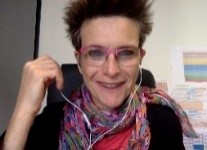
Anne Vanet is Vice president of digital transformation and open science at Université Paris Cité since 2020. She is also a Molecular Biology professor focusing on enzymology, structure and metabolism. She is the referent professor for the course “Corps et Esprit, Esprit de Corps” since she created it in 2011.
Other participants from Université Paris Cité
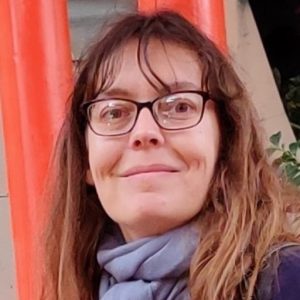
Christine Rampon is assistant professor of biology at Université Paris Cité and member of the advisory board of InnovED4TS for Paris. She is interested very much in the process of learning of transferable skills.
- Corinne Mighirditchian is a street theatre professor. She has been taking part of the course for several years now.
- Isabelle Blanc is a movie director and photographer.
- Guillaume Le Blanc is a professor of philosophy at Université Paris Cité. He is also at the head of the laboratory for social and political change.
- Giuseppe Baldacci is a human and multifactorial pathology professor emeritus at Université Paris Cité. He is also a molecular biology professor.
- Valentin Ozeel is a PhD student in his second year. His field of specialization is virology and currently works on how to prevent viral escape.
- Nawal Safey is the manager of the Pôle Ouvert d’Enseignement à Tous (Open University Department) at Université Paris Cité, promoting the engagement of the university with a large public.
Expert panel
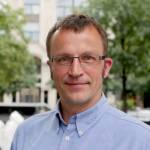 Wolfgang Deicke is a Professor in politics and sociology. He is currently Director of Teaching and Learning Lab at Humboldt University. Before becoming the coordinator of the bologna.lab at Humboldt-Universität in 2012, he variedly taught sociology, politics and the history of European thought and society at the (now) University of Northampton, School of Oriental and African Studies in London and Ruskin College, Oxford. His current research interests are the development of (student) research competencies and organizational development in Higher Education. Since March 2020, he is also joint coordinator of Humboldt-Universität’s Task Force Digital Teaching and Learning.
Wolfgang Deicke is a Professor in politics and sociology. He is currently Director of Teaching and Learning Lab at Humboldt University. Before becoming the coordinator of the bologna.lab at Humboldt-Universität in 2012, he variedly taught sociology, politics and the history of European thought and society at the (now) University of Northampton, School of Oriental and African Studies in London and Ruskin College, Oxford. His current research interests are the development of (student) research competencies and organizational development in Higher Education. Since March 2020, he is also joint coordinator of Humboldt-Universität’s Task Force Digital Teaching and Learning.
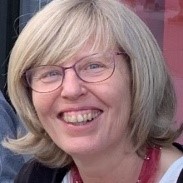
Christine Jacqmot has a PhD in Applied Sciences from the Ecole Polytechnique de Louvain and is a lecturer in group dynamics at UCLouvain. Her interests are related to the quality of teaching and student learning as well as to pedagogical innovation, including technologies to support teaching and learning. Since 2015, she has been leading institutional projects at UCLouvain, among which the deployment of Digital University of UCLouvain (Open Education, Open Publication and Open Source). She is also in charge of strengthening the international aspect of the missions of the Louvain Learning Lab (LLL) of the UCLouvain.
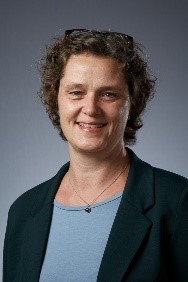
Vibe A. Jelsbak works at Aarhus University. She graduated with a Master of Science (Cand. Scient.) in Biomedicine 1999, and has a Master’s degree in ICT and Learning from 2012. Her primary interests are integrating professional practice and theoretical knowledge in curriculum. Her interests are thereby related to students’ knowledge, skills and competencies relevant for their future workplace – (and lifelong) learning
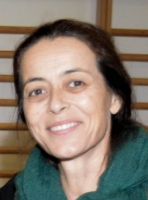
Ana Paula Lebre is an auxiliary professor at the Faculty for Human Kinetics – University of Lisbon in 1st 2nd cycle studies in Psychomotor Rehabilitation and 3rd cycle in Human Motricity-Rehabilitation studies in courses related with assessment and intervention in mental health, intervention models in psychomotor therapy, embodied expressive therapies, body oriented practices for professional development, rehabilitation.
Student participants
- Jad Saad, Computer Science
- Frédérique Tchakote, Chemistry
- Zeineb Karmous, Mathemathics
- Uma Fillon, Biology
- Iseult Le Bars, Medicine
Read more
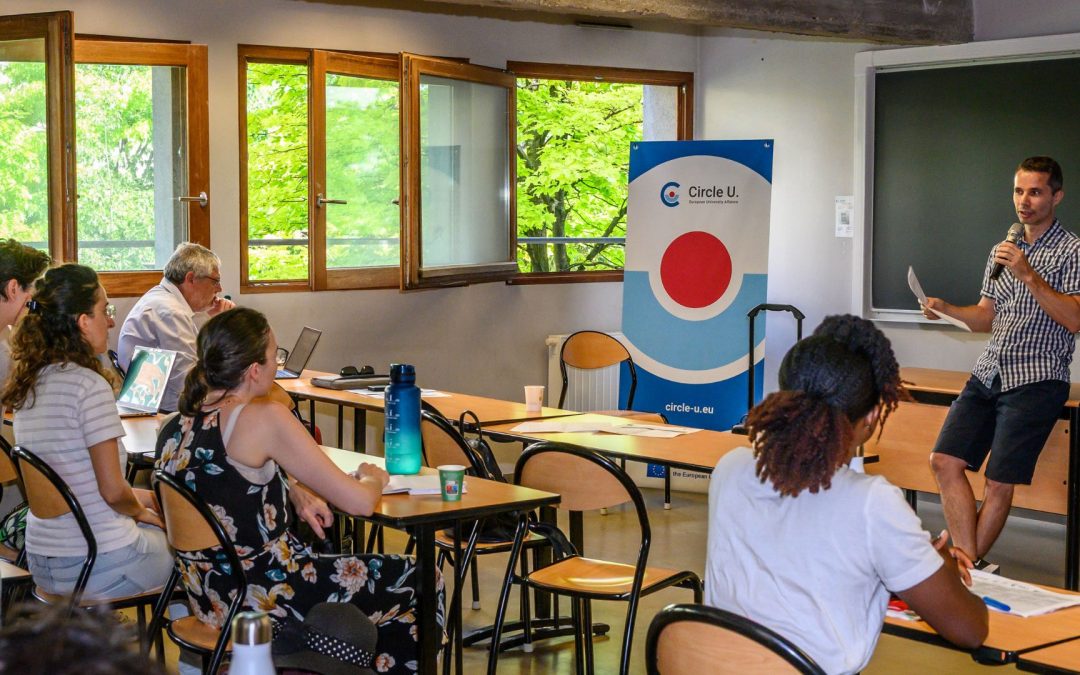
Apply for the Circle U. Summer schools
Are you studying at Université Paris Cité? Do you want to boost your CV while discovering a new country this summer? You can apply to one of the summer schools organised by Circle U., the European alliance of our university. Every year, the Circle U. summer schools...
![[Circle U.] Summer school “New avenues for Global Health”](https://u-paris.fr/wp-content/uploads/2026/01/SUMMER-SCHOOL-CIRCLE-U.-2-1080x675.jpg)
[Circle U.] Summer school “New avenues for Global Health”
![[Bottom-up calls for projects – Circle U.] Internationalise your courses and missions at UPCité!](https://u-paris.fr/wp-content/uploads/2025/10/Bottom-up-UPCITE-1080x675.png)
[Bottom-up calls for projects – Circle U.] Internationalise your courses and missions at UPCité!
Université Paris Cité wishes to support the investment of its administrative staff and academics in Circle U.the European alliance. How? By funding up to 5,000€ projects such as organising international conferences, staff weeks, translating documents to propose...

Université Paris Cité on the path to internationalising its programmes
Université Paris Cité is committed to internationalising part of its study programmes and supporting academic staff who wish to be part of this initiative. In order to provide them with the best support possible in gradually transforming their course modules, it has...
